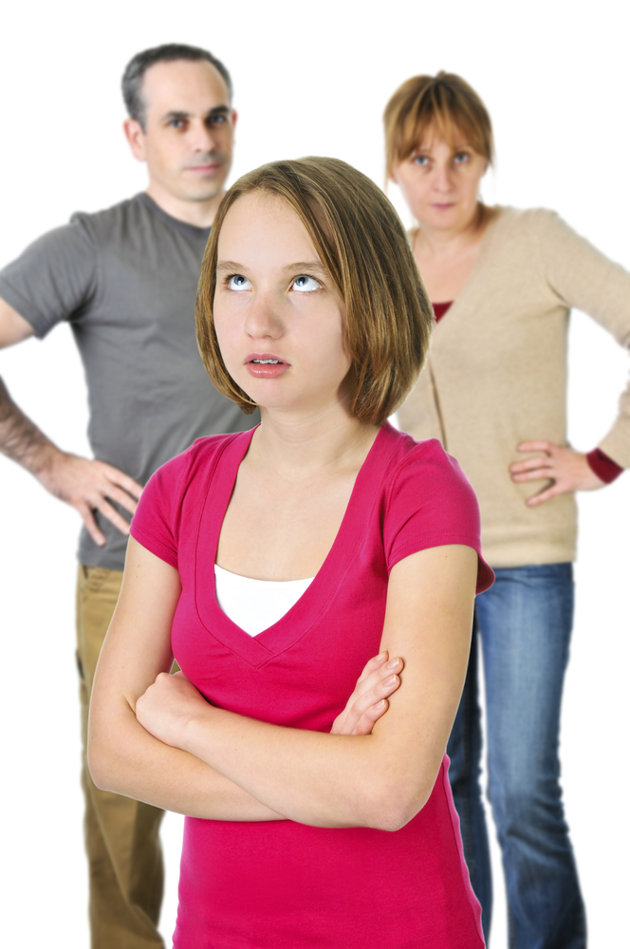Teens and Peer Pressure

Everyone talks about peer pressure on teens, but just how bad is it? Odds are, it’s not as bad as most parents think. Parents may lay awake at night worrying about what other kids will force their children to do. But "when we talk to young people, they tell us this vision of peer pressure is extremely rare," says Stephen Wallace, senior advisor for policy, research, and education of Students Against Destructive Decisions (SADD).
Parents who want to dispel the myth that drugs and alcohol are an adolescent rite of passage can simply cite the facts. A long-term, national study of adolescents in grades 8, 10, and 12 shows that many typical teen behaviors are actually losing popularity.

While 71% of teens have tried alcohol by the end of high school, far fewer drink to get drunk.
In 2010, 27% of students said they got drunk in the past year. This is down from almost 40% in 1997.
In 2010, 34% of students had ever used drugs and only 27% had done so within the past year. Teens who had ever used drugs peaked at 43% in 1997.
Close to 31% of students reported having ever smoked a cigarette, compared to almost 54% in 1991.
Certain drugs get a bad rep as their risks become more widely known. When teens think their friends will look down on them for taking a drug, they’re much less likely to use it. Unfortunately, this does not apply to drug use overall. As some drugs fall out of favor, new ones hit the scene. And it often takes years for teens to understand their new dangers.
Teens rarely strong-arm each other into trying risky things. Instead, friends play a more subtle role in your child’s decisions. Teens are more likely to hang out with other teens who do the same things. For example, a study by researchers at Columbia University shows that kids are six times more likely to have had a drink if their friends often drink alcohol.
The good news? You can have a more powerful positive effect on your teen than you may think.

Teen Peer Pressure Often Comes From Within
Teens often feel internal pressure to do the things that they think their peers are doing. "Most kids wildly overestimate the prevalence of alcohol and drug use," says Wallace, who wrote the book, Reality Gap: Alcohol, Drugs, and Sex -- What Parents Don’t Know and Kids Aren’t Telling.
Take Time to Connect and Talk With Your Teen

Being a teenager is often a dance of push and pull. "Adolescents want to be independent and dependent at the same time," says Benjamin Siegel, MD, pediatrician and fellow of the American Academy of Pediatrics’ committee on the psychosocial aspects of child & family health. "On one hand, they want to assert their independence. On the other, they need their parents."
Your teen probably feels intense pressure to fit in. She may not know how to talk about it. She may not talk much at all. It may take extra effort to connect with her, but chances are she hopes you will. "The more we understand what kids are going through, the more empathic we can be towards them," says Siegel.
Be the 'Bad' Guy

Your rules and structure give your teen a framework for understanding the world, even if he protests. When Wallace asks teens what their parents could do to discourage drinking, the answers were surprisingly simple:
Talk to us. Teens say they want to know what their parents think and how they make decisions.
Punish us. Teens who break rules typically wait to see what happens. If there are no consequences, the rules don’t matter.
Limit overnight visits. Not having to go home can be too much freedom to handle.
Wait up for us. Knowing they have to face mom or dad, or both, in a few hours makes most teens think twice about the shape they’ll be in when they get home.
Encourage Your Teen’s Opinions
Raise your child to have opinions, even if they drive you mad, says Rachel Fleissner, MD, a member of the workgroup on consumer issues for the American Academy of Child & Adolescent Psychiatry. An opinionated child has practice speaking his own mind.Fleissner tells the story of an opinionated young patient whose parents were fed up with his mouthing off. "The child is entitled to his opinion. That doesn’t mean things are always going to go his way," she says. "He needs to learn to think through how he arrived at his opinion and whether it’s worth arguing over."
Observe and Comment on Teen Peer Pressure

"You seem to break the rules every time Johnny comes over."
"I get calls from other parents when you and Johnny hang out."
Some situations call for dramatic action. Fleissner recalls a family who moved across state lines to remove their son from a destructive friend network. He didn’t like it at the time, but thanked his parents years later.
Help Teens Learn From Their Missteps
No matter what you say or do, your child may still mess up. As upset as you may be, your child probably is, too. Fleissner says parents should be ready to help their children take responsibility for their mistakes, and support them in moving on. This is an important time to help a child look at how he makes decisions. Siegel agrees. "Parents should ask questions that encourage self-reflection," he says.
Parents can’t anticipate every social challenge their children will face. Kids who know their parents love them, who value their own opinions, and have practice thinking critically, have a greater chance of saying "No thank you."
view article source.

No comments:
Post a Comment